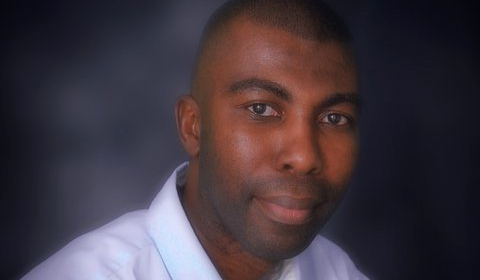History is dotted with individuals going rogue in every sphere of work on the planet. Unfortunately, it has happened in the air traffic control profession. What are the causes, and more importantly, how do we prevent it?
History is dotted with individuals going rogue in every sphere of work on the planet. It occurred multiple times in the aviation industry, and coming closer to home, in the air traffic control profession.
In the past few weeks, air traffic controllers in the Dominican were headlining the news for releasing ATC recordings in support of their industrial dispute with IDAC. In the last few days, it was Guyana’s turn when an air traffic controller abandoned his post while a Caribbean Airlines aircraft was on the way to the airport.
What do all of these stories have in common? Are these random acts without any connection. Let’s examine a few instances of rogue behavior in recent history.
Recent Episodes
Edward Snowden
Former National Security Agency (NSA) contractor Edward Snowden is perhaps the epitome of “going rogue” since he took on the mighty United States of America, becoming instantly world famous – or infamous depending on which side you are on.
Edward Snowden stole and released classified information on the United States’ snooping program. Before fleeing the United States, he said that he repeatedly tried to go through official channels to raise concerns about government snooping programs but that his warnings fell on the deaf ears.
Asked specifically if he felt like he had exhausted all other avenues before deciding to leak classified information to the public, Snowden responded:
Yes. I had reported these clearly problematic programs to more than ten distinct officials, none of whom took any action to address them. As an employee of a private company rather than a direct employee of the US government, I was not protected by US whistleblower laws, and I would not have been protected from retaliation and legal sanction for revealing classified information about lawbreaking in accordance with the recommended process.
The Co-pilot that hijacked Ethiopian aircraft
In February 2014, co-pilot Hailemedhin Abera Tegegn of an Ethiopian Airlines flight, took control of the plane when the pilot left the cockpit to use the toilet. He flew to Geneva Switzerland, jumped out of a cockpit window, and sought asylum when he surrendered to police at the airport.
Ethiopian Airlines is run by the state, and opposition and rights campaigners in Ethiopia accuse the government of stifling dissent. The last senior official to flee Ethiopia did so in 2009 to the United States. Ethiopian nationals and the airline have been involved in several hijackings in the past.
Rogue Behaviour
The Oxford dictionary defines rogue as “a person that behaves in an aberrant or unpredictable way, typically with damaging or dangerous effects.” True to the definition, the individuals’ unpredictable bahaviour has far reaching consequences as actions are not only damaging to themselves, but to their employers and even their countries.
When someone goes rogue, it can be deduced that in the individual’s mind, nothing can be worse than the action that they are about to take. This is akin to cornering a wild animal. The animal will take action to defend itself at the risk of injury to itself rather than submit.
Fortunately or unfortunately, the reptilian brain that lower classes of animals possess, forms part of the human brain. It is the reptilian brain that concerns itself with the everyday business of gathering food, eating, drinking, sleeping, reproducing and, drum-roll please, defending themselves. The reptilian brain don’t do much “thinking.”
Now that the science of lower order animal behavior is out of the way, what gets us to this point.
The Precursor
I often repeat the phrase “there are not enough trees in the forest to generate paper on which to write regulations or procedures for every aspect of our operations.” This tells us that the human element must be put to work, in particular, leadership skills. Humans must be treated like, well, humans.
It takes a special breed of people to lead other people. While some people are born leaders, others can develop the skill. Kudos to those organizations that develop and nurture the people who the put in charge of others. Woe to those that don’t.
I truly believe that when skin, muscles and other body tissues are striped away from humans, etched on their bones would be the words respect me, acknowledge me, or some variant thereof. People need to feel like they belong to a group. Abraham Maslow argued this in his 1943 paper on the Theory of Human Motivation. It is the leader’s role that is concerned with making people feel like they are a part of a group, an organization, or fraternity. The lack of leadership therefore must be a strong contender as a precursor for rogue behaviour.
An American Indian proverb says that if you listen to the whispers, you wouldn’t have to hear the screams. Who was listening to the repeated reports and complaints, or just making intelligent observations of the goings on of the organization? BINGO!!! In hindsight, one can see that the whispers fell on deaf ears and then painfully, the scream comes when it is too late.
In his book, the Black Swan, Nassim Nicholas Taleb posited that the absence of evidence is not evidence of absence. Like good parents that ask their children questions when they don’t readily volunteer information, managers must seek to be informed about what issues might be affecting the staff in their charge.
As rogue behaviour continues to make headlines, one can see the similarity between all the events and begin to connect the dots. There are often one or more problems simmering for a long period of time. The issues were likely raised with management several times with no satisfactory resolution. Sensing in his own mind that he would have reached the end of the road with regards to other logical alternatives, a controller like any other human in a similar situation will go rogue.
At the end of the day, the controller and the organization for which he works must share the blame for the action that he takes. The behaviour of employees in an organization is shaped in part by its culture. Actions taken by rogue controllers should force an organization to take a closer look at the culture they have created. It is, after all, the tone from the top that sets in motion how employees behave and it is up to managers and leaders to outline – in words and actions –what is expected, valued and rewarded.
Prevention
The Human Resources arm of the organization has a pivotal role to play by bridging the gap in knowledge between those at the top and bottom of an organization. If questions are asked about issues in an organization, it is clear that managers are actually managing and taking responsibility for the actions of their staff.
My own experience as a young controller working in Guyana informs me that that is the preferred method for successfully managing. I have to give kudos to Mr. Robert Singh, the senior air traffic controller at that time, who repeatedly asked questions when we were on watch. Then to wrap up the Q&A sessions we had with him, he would reinforce good behaviours by repeating his now famous phrase do the right thing.
Can management create an environment where individuals are prevented from going rogue? The answer depends on whether or not the whispers are being listened to.








